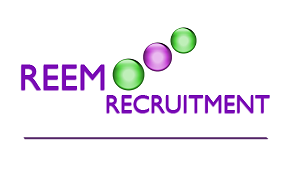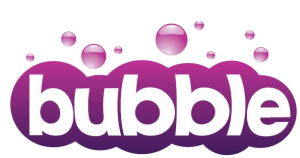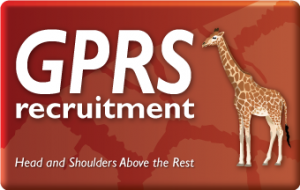Following on from last week’s blog, this week we continue Giraffe CVs’ three-part blog series: smart tips for interview success. This week’s blog, part two in the series, focuses on what you can do during your interview to position yourself for success.
We consulted with a number of recruitment and employability experts; asking them for inside advice and interview tips to help you succeed during your interview. We hope you enjoy their answers.
PART 2: AT THE INTERVIEW
First impressions count. What makes a candidate tick your boxes when they enter the interview room?
 “The first impression should be of someone who is smart and appropriately dressed. They walk in with confidence, have a firm handshake and make good eye contact.
“The first impression should be of someone who is smart and appropriately dressed. They walk in with confidence, have a firm handshake and make good eye contact.
All of these things go towards making a good initial impression.”
Pamela Hopkinson, Jobs in Food Manufacturing. Contact via Twitter @JobsinFoodMfr
__________________________________________________________________________________
 “Wearing a smart outfit, making eye contact, and smiling. It is important to show some enthusiasm – meaning that you want to be there and are interested in the job. I have heard about people who have turned up to the job interview, not showing interest and not presenting their best self.
“Wearing a smart outfit, making eye contact, and smiling. It is important to show some enthusiasm – meaning that you want to be there and are interested in the job. I have heard about people who have turned up to the job interview, not showing interest and not presenting their best self.
Remember to be yourself, as the interviewer will want to know about the person with whom they will be interacting and find out if they will fit with the team.”
Sophia Husbands, GoGetterMe. Contact via Facebook or Twitter @GoGetterMe
____________________________________________________________________________________
 “This is so important. I can’t tell you how much it frustrates me and my clients when candidates turn up not suitably dressed. Unless you have being advised otherwise, you need to dress formally. I would always recommend wearing a matching jacket and trousers/skirt. Make sure everything is perfect: your tie is straight, your shirt is ironed and your shoes are clean. These may seem like minor details but they can tell an employer a lot about you.
“This is so important. I can’t tell you how much it frustrates me and my clients when candidates turn up not suitably dressed. Unless you have being advised otherwise, you need to dress formally. I would always recommend wearing a matching jacket and trousers/skirt. Make sure everything is perfect: your tie is straight, your shirt is ironed and your shoes are clean. These may seem like minor details but they can tell an employer a lot about you.
Make sure you are prepared as soon as you walk into the building or office. Know who you are there to meet and greet everyone you meet with a friendly attitude. Although you may not be interviewing with those people, your interview begins as soon as you walk in the building. Greet your interviewer with a firm handshake and thank them for taking the time to see you.”
Vicky Pachner, Director, Reem Recruitment Contact via Facebook.
How can the interviewee ensure their interview is a two-way process?
 “The most important thing is to have some questions of your own. Not having any questions at all makes you either seem uninterested in the process or so desperate for the job that you’re too nervous to ‘rock the boat’! An interview is an opportunity for both parties to see if the company and position will work for them.
“The most important thing is to have some questions of your own. Not having any questions at all makes you either seem uninterested in the process or so desperate for the job that you’re too nervous to ‘rock the boat’! An interview is an opportunity for both parties to see if the company and position will work for them.
Focus on questions that show you are interested in both your own development and the future of the company.
Avoid asking any questions that you could easily find an answer to in the job spec or company website and stay away from the usual clangers of asking about benefits or holidays.”
Leo Woodhead, Careers Advisor. Contact via Twitter @thecareersblog
_________________________________________________________________________________________
 “During a job interview you will more than likely be given a number of chances to ask some questions, so it’s a great idea to have some prepared in advance. This is a great way of making an interview a two-way process. Here are some examples:
“During a job interview you will more than likely be given a number of chances to ask some questions, so it’s a great idea to have some prepared in advance. This is a great way of making an interview a two-way process. Here are some examples:
What are the day-to-day responsibilities of this job?
What kind of work can I expect to be doing in the first year?
What are some of the skills and abilities necessary for someone to succeed in this job?
What percentage of routine, detailed work will I encounter?
How much opportunity will I have for decision making in my first assignment?
How will my leadership responsibilities and performance be measured?”
More questions are detailed on StudentVine/GradQuiz Contact via Twitter @GradQuiz
What are the key non-verbal actions and characteristics to be mindful of?
 “Interviews can be very stressful and the trick is to come across as calm. Walk confidently into the interview room, with your head held high and make eye contact with all of the interviewers taking part and give a firm handshake.
“Interviews can be very stressful and the trick is to come across as calm. Walk confidently into the interview room, with your head held high and make eye contact with all of the interviewers taking part and give a firm handshake.
Sit down in a position that is most likely to be comfortable for a long period of time to ensure you do not have to keep repositioning yourself, but do not slouch! Keep hands folded together in your lap and do not fidget.
If you are being interviewed by a panel, try to respond directly to the individual that asked a specific question, but intermittently also look across to the other interviewers to maintain a sense of inclusion and conversation.”
Pamela Hopkinson, Jobs in Food Manufacturing. Contact via Twitter @JobsinFoodMfr
Are there any ‘bad’ questions an interviewee can ask?
 “There are guaranteed ways to annoy an interviewer, and asking silly questions is one of them! Some of the worst are asking what exactly the job you are being interviewed is. This shows a lack of initiative and that you haven’t researched the position prior to the interview – a big no-no!
“There are guaranteed ways to annoy an interviewer, and asking silly questions is one of them! Some of the worst are asking what exactly the job you are being interviewed is. This shows a lack of initiative and that you haven’t researched the position prior to the interview – a big no-no!
Another deal-breaker question is asking how many days holiday you will get. While it’s a perfectly reasonable question, it’s not really one for an initial interview! It suggests you’re more concerned with benefits than the job itself.”
Bubble Jobs Contact via Twitter @BubbleJobs
______________________________________________________________________________________
 “Candidates need to know exactly what they are applying for and should not ask questions with answers that should be blatantly obvious to them.
“Candidates need to know exactly what they are applying for and should not ask questions with answers that should be blatantly obvious to them.
Asking about money can also send out the wrong sign and should never be asked at the start of an interview!”
Pamela Hopkinson, Jobs in Food Manufacturing. Contact via Twitter @JobsinFoodMfr
How should you conduct yourself during a Skype interview?
 “Being part of Skype interview can be quite daunting, but they are growing in popularity so it’s important to be prepared!
“Being part of Skype interview can be quite daunting, but they are growing in popularity so it’s important to be prepared!
Don’t be too casual – even though you’re at home, you should make sure you’re dressed smart and act as if you were in a real-life interview room.
Also, make sure the room you’re being interviewed in is clean – no interviewer would be impressed with seeing a pile of dirty washing in the corner!
Finally, be natural, but take advantage of the set up and hide some post-it notes around your screen to give you a quick reminder when you’re struggling to answer a question.”
Bubble Jobs Contact via Twitter @BubbleJobs
What should a candidate be aware of when taking part in a telephone interview?
 “Telephone interviews do not just happen, just as with a one to one interview you will know the time and date, so ensure that you are somewhere quiet where people know not to interrupt you.
“Telephone interviews do not just happen, just as with a one to one interview you will know the time and date, so ensure that you are somewhere quiet where people know not to interrupt you.
Get yourself in the right mind set to take the call and stand and smile throughout the course of the conversation. This might sound strange, however human communication, according to some researchers consists of more than 50-70% non-verbal signs such as facial expressions etc. By having a phone conversation these communication tools are not available to you. Therefore standing and smiling whilst talking will help in you sounding positive.
Have a pen and piece of paper available to you and note the name of the company and interviewer together with the job title at the top, especially if you are applying for a number of vacancies.
Have a copy of your CV and the job description, if you have one, to hand that you can also refer to if required.”
Pamela Hopkinson, Jobs in Food Manufacturing. Contact via Twitter @JobsinFoodMfr
How can interviewees demonstrate they are keen and have the right skills for the position?
“If they have done their homework properly leading up to the interview, candidates will be well equipped to demonstrate their abilities. When answering questions they should give examples of work/projects that they have undertaken that have given them the relevant skill set to deal with the role they are applying for.
Using the vacancy description as a basis for responding to questions can also help the candidate include details that although not specifically mentioned in a question, are relevant to the role and desirable to the potential employer.”
Pamela Hopkinson, Jobs in Food Manufacturing. Contact via Twitter @JobsinFoodMfr
What advice could you offer a candidate on how they can close an interview?
 “‘Closing’ an interview can be interpreted a number of ways.
“‘Closing’ an interview can be interpreted a number of ways.
It could literally mean, drawing it to a close; a nice, punchy finish.
It might also mean ‘closing’ in the sales-sense; your final chance to sell yourself; the elevator pitch.
Or, it could mean a clear statement of your intentions / feelings in light of everything you’ve discussed at the interview.
However you choose to interpret the concept, we have one, universally applicable piece of advice: Don’t walk out of the door scratching your head. Make sure you know exactly where you stand!
If you’re wildly enthusiastic, tell them so. If you need more information before you make a decision about whether they’re right for you or not (and remember, interviews may look like a one-way street but you’re interviewing them as much as they’re interviewing you) –then say so. If you’re not sure what they’re thinking about you – ask. Ask if there’s any other information they need to know in order to ascertain whether you’re suitable. Or, if you’re feeling confident, ask the interviewers if there are any areas in which other candidates have demonstrated particular strength, and in which they would find a cross-candidate comparison useful. They might not be able to give much away verbally, but body language is very telling. Read between the lines.”
Tim Burns, Managing Director, GPRS Recruitment. Contact via Twitter @gprsrecruitment
_________________________________________________________________________________
“Candidates should ensure that you have a few relevant questions of their own to ask at the end of the interview, which demonstrate an interest in the organisation or industry sector. However, these should be kept relatively succinct as often interviewers will be conducting more than one interview after another.
Thank the interviewer for their time and confirm your interest in the position and give a firm handshake.”
Pamela Hopkinson, Jobs in Food Manufacturing. Contact via Twitter @JobsinFoodMfr
__________________________________________________________________________________
“I would say that they should thank the interviewer and also before the close, ask the interviewer if there was any area(s) where they needed further clarification. Often, if you are asked a question more than once, it is because the interviewer may not have found the insight they were looking for.”
Sophia Husbands, GoGetterMe. Contact via Facebook or Twitter @GoGetterMe


Trackbacks/Pingbacks